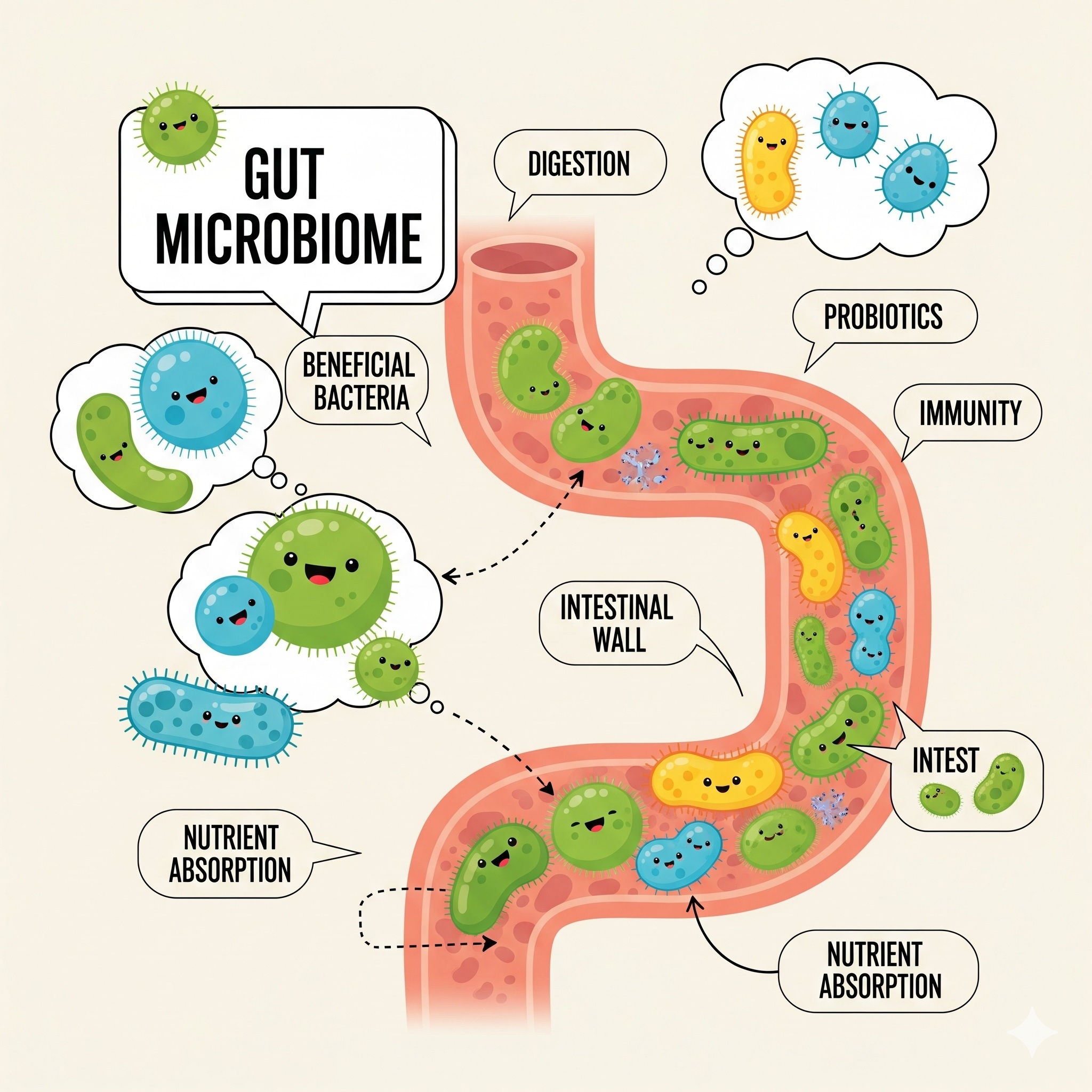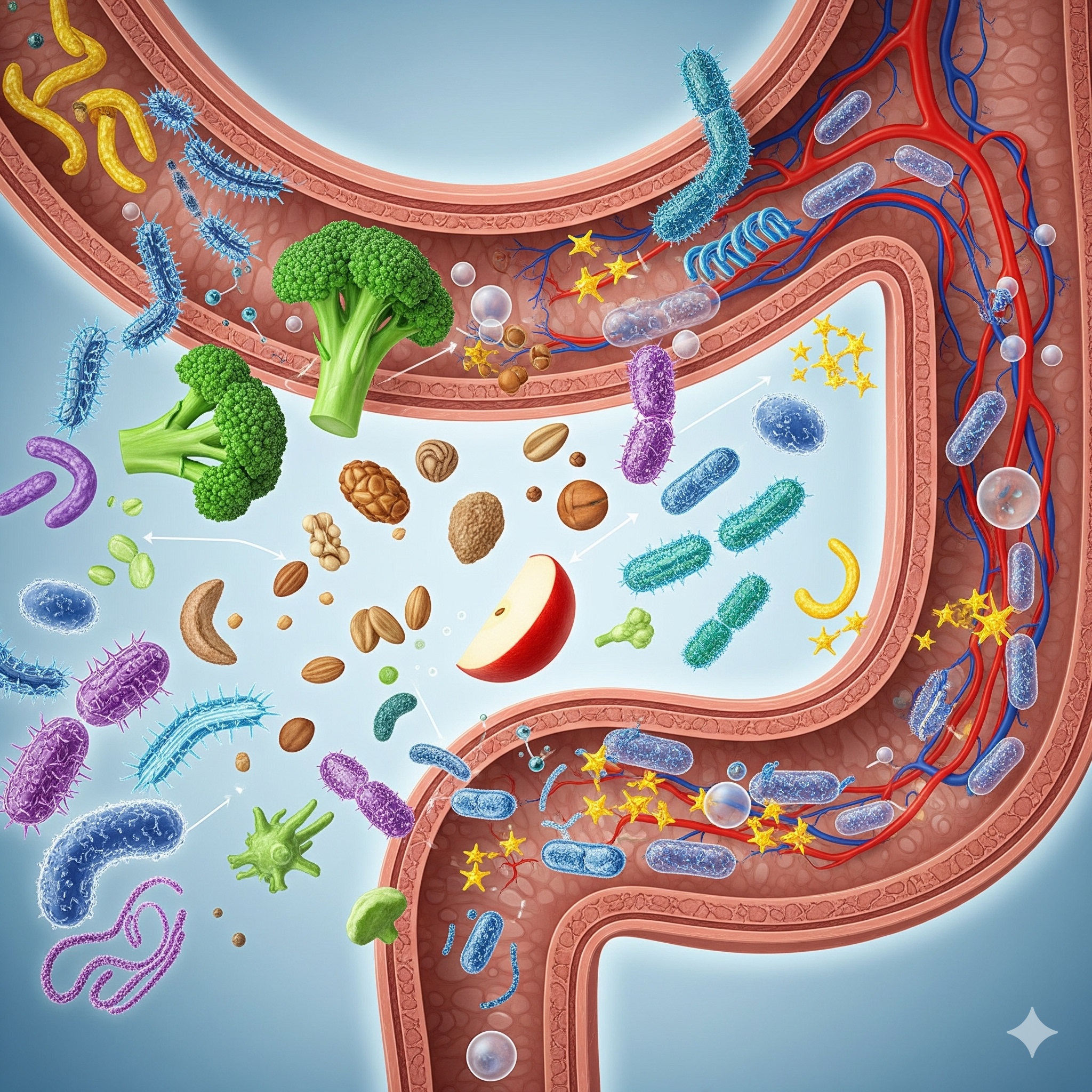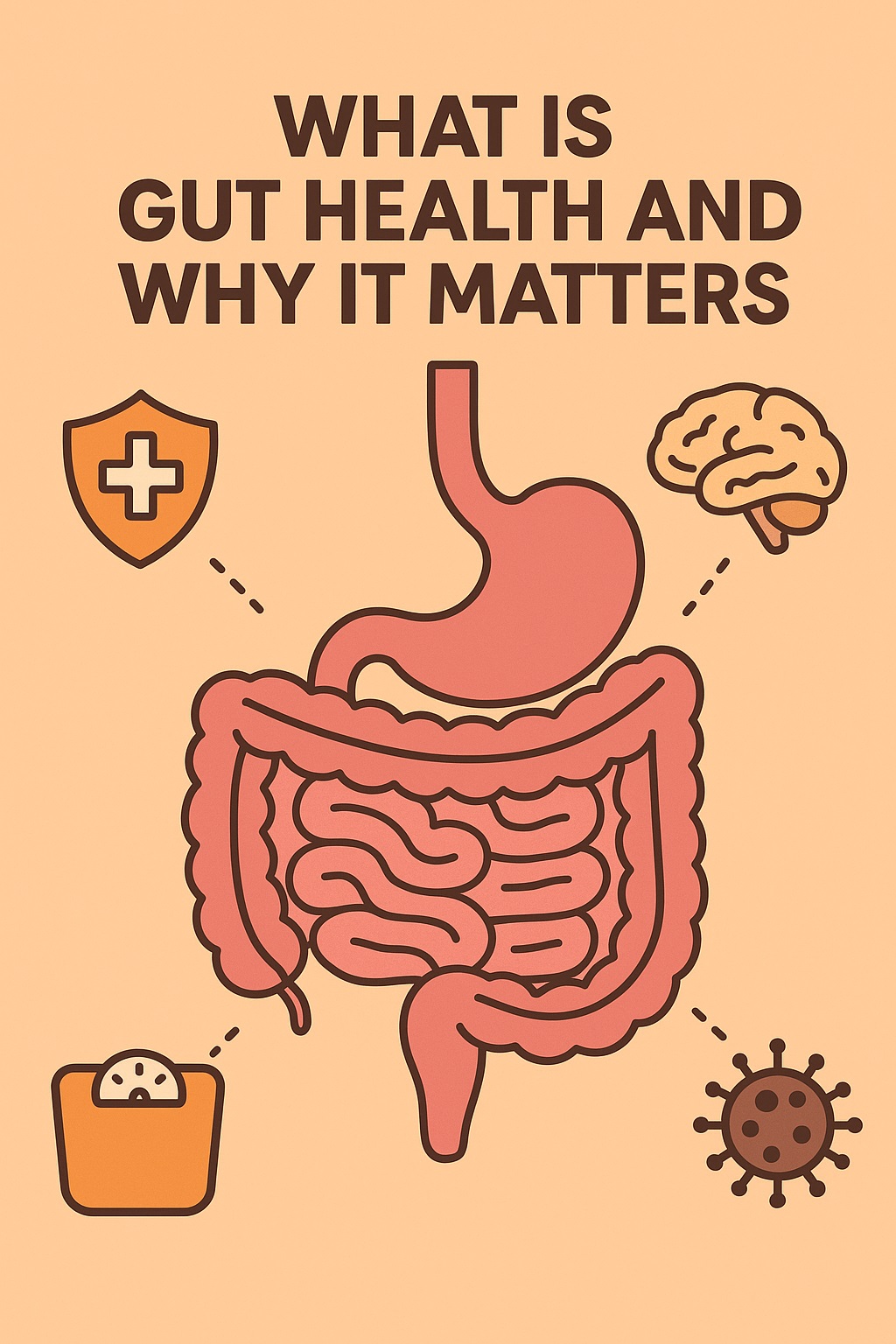If you’ve ever heard the phrase “trust your gut,” it might be more scientific than you think. Inside your digestive tract lives a vibrant, complex community of trillions of microorganisms — collectively known as the gut microbiome. These tiny residents aren’t just passive passengers; they actively shape your health, digestion, immunity, and even your mood.
This complete beginner’s guide will walk you through everything you need to know about the gut microbiome: what it is, why it matters, what affects it, and how you can keep it thriving with simple lifestyle changes and the right probiotics.
What Is the Gut Microbiome?
The gut microbiome refers to the entire ecosystem of microorganisms living in your gastrointestinal tract. These microbes include:
- Gut bacteria (the most studied and abundant residents)
- Viruses and fungi
- Archaea and protozoa
Most of these microbes are beneficial or harmless, and they play essential roles in your body’s functions. In fact, researchers estimate there are as many microbial cells in your body as there are human cells — meaning you are roughly half microbe!
Why the Gut Microbiome Matters
Your gut microbiome is not just sitting there; it’s busy working 24/7 to keep you healthy. Here are some of its most important roles:
1. Supporting Digestion
Certain foods, especially fibers and resistant starches, can’t be fully digested by human enzymes. Your gut bacteria break these down, producing short-chain fatty acids (SCFAs) that:
- Provide energy to intestinal cells
- Reduce inflammation
- Promote a healthy gut lining
2. Producing Nutrients
A balanced microbiome synthesizes important compounds like:
- Vitamin K
- B vitamins (biotin, folate, B12)
- Essential amino acids
3. Training the Immune System
Approximately 70% of your immune system is housed in your gut. The microbiome helps teach immune cells to distinguish between harmful invaders and harmless substances — preventing excessive inflammation.
4. Communicating with the Brain
Through the gut-brain axis, gut microbes can influence mood, stress levels, and even cognitive function by producing neurotransmitters like serotonin.
Factors That Shape Your Gut Microbiome
Your microbiome begins forming at birth — partly influenced by whether you were born vaginally or by C-section — and it continues to develop during infancy. By adulthood, it becomes relatively stable but can still be influenced by:
- Diet: High-fiber, plant-based diets support microbial diversity. Processed foods and excess sugar can harm it.
- Antibiotics: These drugs can disrupt microbial balance by killing good and bad bacteria alike.
- Stress: Chronic stress can negatively impact microbiome composition.
- Sleep and Lifestyle: Poor sleep and sedentary habits reduce diversity.
- Environment: Exposure to different microbes through pets, soil, and outdoor activities can enrich your gut flora.
Signs of an Unhealthy Gut Microbiome
When the balance of your microbiome is disrupted — a condition called dysbiosis — you might experience:
- Frequent bloating or gas
- Constipation or diarrhea
- Unexplained fatigue
- Food intolerances
- Skin issues like acne or eczema
- Mood imbalances such as anxiety or irritability
These symptoms don’t always mean a microbiome issue, but they can be clues that your gut health needs support.
How to Improve Your Gut Microbiome
The good news is that your microbiome is highly adaptable. Here’s how to give it a boost:
1. Eat a Diverse, Fiber-Rich Diet
Microbial diversity thrives on variety. Include:
- Vegetables (leafy greens, carrots, broccoli)
- Fruits (berries, bananas, apples)
- Whole grains (oats, quinoa, barley)
- Legumes (beans, lentils, chickpeas)
These foods act as prebiotics, which are the fuel for beneficial bacteria.
2. Incorporate Fermented Foods
Fermented foods naturally contain live beneficial microbes — essentially natural probiotics. Add:
- Yogurt or kefir
- Sauerkraut
- Kimchi
- Miso or tempeh
- Fermented pickles
3. Consider Probiotic Supplements
When diet alone isn’t enough, probiotic supplements can help restore balance. Look for multi-strain formulas containing Lactobacillus and Bifidobacterium species.
Tip: Always consult a healthcare professional before starting a new supplement, especially if you have health conditions or are taking medications.
4. Manage Stress
Mindfulness, deep breathing, and physical activity can all reduce stress and protect your microbiome from disruption.
5. Prioritize Sleep
Aim for 7–9 hours of quality sleep per night. Your microbiome follows a circadian rhythm, so consistency matters.
6. Exercise Regularly
Moderate physical activity has been shown to enhance microbial diversity — especially aerobic exercise like walking, cycling, or swimming.
Gut Microbiome and Weight Management
An emerging area of research suggests that your microbiome may influence your metabolism and body weight. Some gut bacteria are more efficient at extracting calories from food, which may contribute to weight gain. Balancing your microbiome could help support healthy weight regulation.
Myths About the Gut Microbiome
Myth 1: All Bacteria Are Bad
Many people associate bacteria with illness, but most gut bacteria are either helpful or neutral. A diverse microbiome is essential for health.
Myth 2: One Probiotic Fixes Everything
Not all probiotics are created equal. Different strains have different effects, so it’s important to choose the right ones for your goals.
Myth 3: You Can “Reset” Your Gut Overnight
Restoring a healthy microbiome takes time. Consistent diet and lifestyle choices are more effective than quick fixes.
Gut Microbiome and Mental Health
Researchers are increasingly fascinated by the connection between gut health and mental well-being. Studies show that people with anxiety and depression often have different gut microbial profiles compared to healthy individuals.
Supporting your microbiome may improve:
- Mood regulation
- Stress resilience
- Cognitive performance
When to Seek Professional Help
If you experience persistent digestive discomfort, blood in stool, severe bloating, or unexplained weight changes, consult a healthcare provider. A professional can run stool tests, assess your microbiome, and recommend targeted interventions.
Key Takeaways
- The gut microbiome is a thriving ecosystem of gut bacteria essential for digestion, immunity, and overall health.
- A diverse microbiome comes from a varied, fiber-rich diet and healthy lifestyle habits.
- Probiotics and prebiotics can help maintain balance, but consistency is key.
- Protecting your gut means supporting your whole-body health — from better digestion to improved mood.
Your gut is not just a part of your body — it’s a partner in your health journey. Treat it well, and it will reward you with better energy, smoother digestion, and a stronger immune system.




